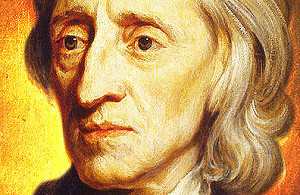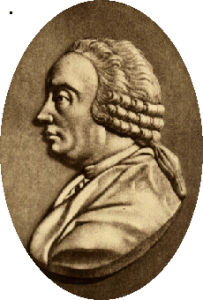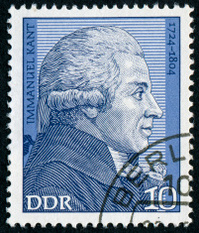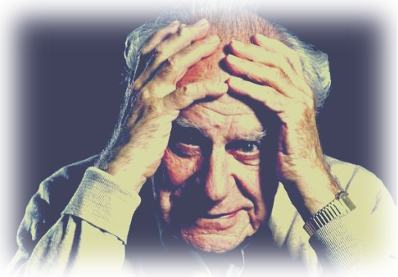Empiricism is the complete opposite of rationalism. Empiricists believe that true knowledge of the world is obtained through the senses, not by reason. These philosophers argue that we have ideas only because we have perceptions. All knowledge is based on experience.
Locke disagreed with Descartes’ rationalism and had no inclination to rely on religion to support his thinking, as Descartes had done.
His most important book of philosophy was called “An Essay on Human Understanding”. In this book Locke tries to demonstrate how people acquire knowledge. He described philosophers as the “underlabourers” of the scientists, because a philosopher’s job is to clear the ground of the rubbish that gets in the way of gaining knowledge.
The first issue Locke grapples with in the book is whether people are born with ideas or whether these are acquired through experience. He plumped for experience. According to Locke, the mind of newborn baby is a blank slate. From then on, the mind is bombarded with a massive input from the senses. Lock called these first impressions about the world “ideas of sensation”. These might include experiencing the colour yellow or the weight of an apple. They are “simple” ideas, which can not be broken down any further. If someone does not understand yellow, it can only be shown, not explained. Simple ideas are the building blocks of all knowledge. In the first instance, these ideas are passively received by the mind. the mind become active when it begins to combine them into “complex” ideas. For example a unicorn is a a combination of simple ideas. Locke call this type of idea “complex” because it has no basis in reality as perceived by the senses.
Locke was challenged by those who said his theory did nothing to explain whether reality is really real, or just a set of ideas caused by senses. Locke tried to answer this by making a distinction between a thing’s primary and secondary qualities. Locke argued that all things in the outside world have qualities that are part of the thing itself and cannot be separated. For example, if we close off all our senses to an orange so that we cannot smell it, taste it, see its colour, or feel its shape, the orange still has shape, weight and density. Locke called these types of qualities “primary”. The orange’s colour, weight, and smell are all “secondary” qualities. Locke said that secondary qualities are produced in the mind in response to the stimulation of our senses. In this way, Locke felt he had proved that there is a real external world, and that a thing’s existence did not depend on our perceptions.
Locke’s “real” world full of things and their primary qualities is very similar to Descartes’idea of material substances. Locke was then forced with the question of whether this objective world of things is all that there is. He conceded that there must be a more basic “something” — and he admitted that he did not have a clue what it is!
Hume used a two-pronged method for testing the truth about reality. This is often referred to as Hume’s “fork”. On one prong of the fork are all the truths that are the logical conclusion of reasoning. These include all mathematical conclusions (such as 3+2=5) and self-evident truths (such as the statement: all women are female). Hume argued that reason, therefore, tells us very little about the world. On the other prong of the fork are what Hume called “matters of Fact”. These are all the things we learn about the world through direct experience. Like Locke, it was Hume’s view that all useful knowledge about the world comes from what is experienced through the senses.
Hume used this two-pronged approach to sift through all possible ideas about reality in search of the truth. He found that his fork picked up very little that would answer any of the big questions in philosophy, such as “Is there a God?”. When Hume applied his method to this question, he found that the concept of God could not be linked to direct experience. Therefore, the existence of God could neither be proved nor disproved.
Hume said that people could be certain of very little. His method led him to be sceptical about everything that failed his test — even previously accepted laws of nature. For instance, he argued that he cannot be certain about our belief in cause and effect. His most famous example is one billiard ball striking another and causing it to move. Hume could directly observe that one event followed another. He could also observe the first ball striking the other. But he cold not observe the “cause”, or the necessary connection between two events. However many times he experienced the sequence. He said that we expect one ball to move if it is strike by another, but this does not necessarily mean that it always will. In the same way, he challenged the law of gravity. He said that we expect an object to fall if it is dropped because we have always observed that this happens. Hume claimed that the laws of nature are in fact just expectations imprinted in our minds, which we then project out into the world. These expectations are built up from our past experience of the world. If tomorrow we dropped a glass and it did not fall, then our belief in gravity will be destroyed. Hume’s point was that past experience is no guarantee of future experience. He wanted to remain open-minded about the nature of reality, which is why he adopted such a special approach.
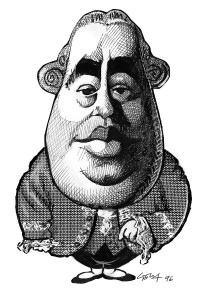 Another belief that Hume challenged was the idea that we can know who we are. According to Hume’s method there can be no such thing as “self” in the sense of the continuing, unchanging identity. When he tried to look at himself from the inside, he always found himself in the process of feeling something, be it hot, cold, happy, or angry. At best, he found himself to be a “bundle of perceptions” that constantly changed. In other words, not only did he doubt that he stayed the same person throughout life, he doubted that he was the same person from one moment to the next! Hume said that only the blindness of familiarity kept people from realizing this about themselves.
Another belief that Hume challenged was the idea that we can know who we are. According to Hume’s method there can be no such thing as “self” in the sense of the continuing, unchanging identity. When he tried to look at himself from the inside, he always found himself in the process of feeling something, be it hot, cold, happy, or angry. At best, he found himself to be a “bundle of perceptions” that constantly changed. In other words, not only did he doubt that he stayed the same person throughout life, he doubted that he was the same person from one moment to the next! Hume said that only the blindness of familiarity kept people from realizing this about themselves. Hume disagreed with the idea that morality is the question of reason. He said that it is our feelings that give us a sense of what is right and wrong. Compassion motivates us to help others or put other people’s needs above our own. He argued that we cannot deduce what is good or bad from facts about the world. Judgement comes from within, by reflecting on our own feelings and empathizing. This accounts for the fact that different people have different moral values. Hume pointed out that it would be more “reasonable” to make cold decisions or to act selfishly. He said, “It is not contrary to reason to prefer the destruction of the whole world rather than stretching of mu finger.”
Kant was a Rationalist, never questioning the power of reason to reduce truths beyond human experience, until he encountered the Empiricist views of David Hume. Kant wrote that Hume woke him up from his “dogmatic slumber”. However, Kant did not change camps and become an Empiricist. Instead, he took what was important from each school and put them together into one philosophy. That is known as “Kant’s Synthesis”.
Kant found Hume’s scepticism challenging. Hume had concluded that knowledge beyond human experience is impossible and that experience could tell people very little for certain. Kant wanted to find a way out of this dire state of affairs. He began by trying to discover the capabilities of human thought. The result was his book “Critique of Pure Reason”.
His findings revealed Hume’s claim that gravity and other “natural laws” are merely expectations caused by repeated experience. Kant argued that these laws are part of the construction of the human mind itself. In other words, people are already pre-programmed at birth with a set of rules to structure their experience of the outside world.
Kant was also interested in ethics. He disputed Hume’s views that right and wrong are personal judgements based on experience. Kant believed he could provide a rational way to distinguish between good and bad actions. He argued that an action would be wrong if the result of everyone doing it caused a universal problem. For example, he considered it wrong to lie. Kant reasoned that if everyone lied, no-one could trust the word of anyone, and the result would be disastrous. In the same way, an action is right if its general practice would be to the benefit of everyone.
Popper wanted to solve the problem that Hume had left to philosophy. Hume had argued that whenever we think we are observing a law of nature, in reality we are just projecting our expectations on to the world. He said that our experience of the past is no guarantee of what we can expect in the future.
Popper realized that Hume’s sceptical conclusion threw the whole of scientific method into doubt. Hume was putting science’s belief in natural laws such as gravity on a par with a belief such as “all cows are brown” (using the scenario that no-one has ever seen a cow that was not brown). Popper’s aim was to try to restore faith in science.
Popper agreed with Hume that science cannot be a matter of certainty, but he disagreed that this made science useless. Through his method of “falsification”, Popper showed that it is possible that to prove some scientific claims wrong. In contrast, , non-sciences like astrology cannot be proved either right or wrong. However, each time science gets it wrong, it gets closer to getting it right. For example, if we have come to believe from our experience that all cows are brown, and then we see a white cow, we are adding to our knowledge of all the possible colours that cows might be. In other words, we are getting closer to the whole truth about the colour of cows.

